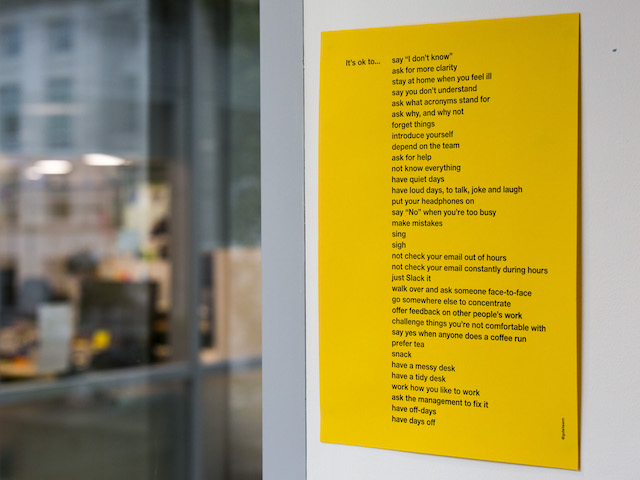Reflection week 16
19 Apr 2019Week notes are back!
As I’ve slowed my pace and made space to reflect, I kept returning to some of the lessons I learned reading Switch. They hit home last week when I re-read my notes from the book.*
I’ve also had the opportunity to think critically about pairing with one of the teams at my company and borrowed a tool from GDS to capture those thoughts.
And finally, I’m back to reading.
Going back to Switch
If you’re in the midst of a change process at an organisation and you’ve not read Switch, put down what you’re currently reading and pick this up instead.
Switch provides an understanding of the human response to change and how that understanding can make aspects of change easier.
I found the book useful when thinking about changes in my team and the engineering department more broadly.
The book focuses on six lessons:
1. What seems like resistance can be lack of clarity
→ Provide direction
2. What seems like apathy can be exhaustion
→ Engage emotion
3. What seems a people problem can be a situation problem
→ Adjust situation
4. Some is not a number, soon is not a time
→ Be specific
5. Find and learn from bright spots
→ Cultivate what's working
6. Use solutions-focused therapy
→ Ask: "Given a miracle, what’s the first
small sign to indicate improvement"
From my experience, and from watching others, balancing these lessons is hard. However, not attempting to balance them or not recognising their importance can be risky when doing change in an organisation.
It’s ok to… for pairing
I stumbled on a GDS blog post related to mental health: “It’s ok to say what’s ok”.

I loved the idea of doing something similar for pairing (which we do a lot of) so facilitated a session to help build an “It’s ok to…” for how a team wanted to approach pairing.
Pairing can be hard and it takes work. It’s helpful to surface assumptions and perceptions so the team has shared understanding and expectations.
Currently reading
I’m torn between two books at the moment, Difficult Conversations and The Righteous Mind.
Difficult Conversations is the companion to Thanks for the Feedback and felt like a good follow-up to reading the latter.
However, a colleague highly recommended The Righteous Mind and I can’t put it down.
Notes
*At some point I’d love to do what my colleague Ina has done and create a book summaries repo to better share what I’ve learned from reading.